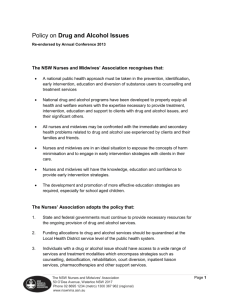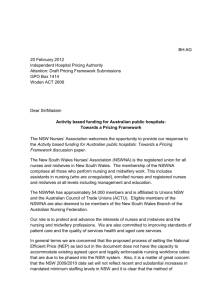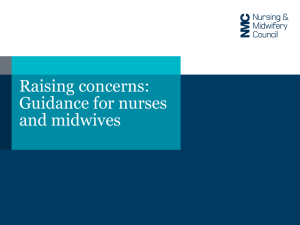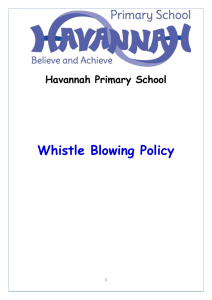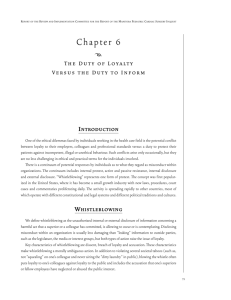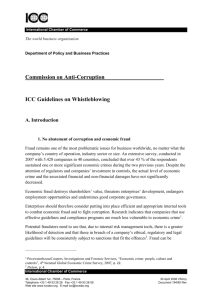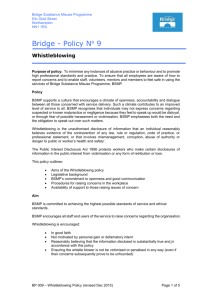Policy on Whistleblowing and Nursing
advertisement
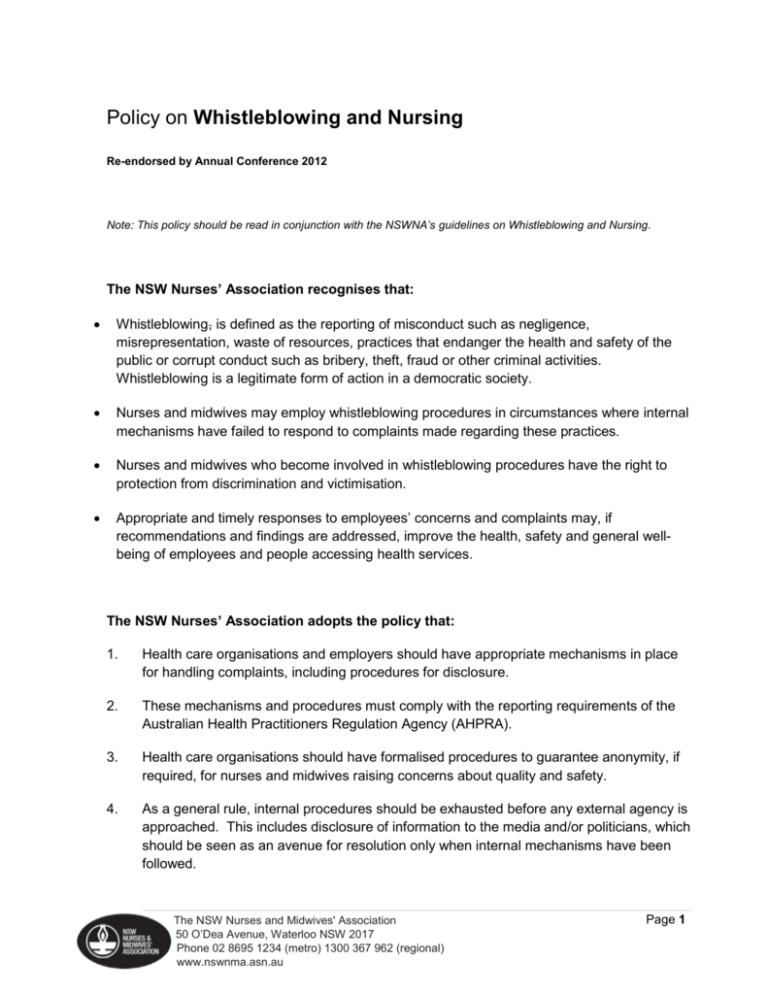
Policy on Whistleblowing and Nursing Re-endorsed by Annual Conference 2012 Note: This policy should be read in conjunction with the NSWNA’s guidelines on Whistleblowing and Nursing. The NSW Nurses’ Association recognises that: Whistleblowing, is defined as the reporting of misconduct such as negligence, misrepresentation, waste of resources, practices that endanger the health and safety of the public or corrupt conduct such as bribery, theft, fraud or other criminal activities. Whistleblowing is a legitimate form of action in a democratic society. Nurses and midwives may employ whistleblowing procedures in circumstances where internal mechanisms have failed to respond to complaints made regarding these practices. Nurses and midwives who become involved in whistleblowing procedures have the right to protection from discrimination and victimisation. Appropriate and timely responses to employees’ concerns and complaints may, if recommendations and findings are addressed, improve the health, safety and general wellbeing of employees and people accessing health services. The NSW Nurses’ Association adopts the policy that: 1. Health care organisations and employers should have appropriate mechanisms in place for handling complaints, including procedures for disclosure. 2. These mechanisms and procedures must comply with the reporting requirements of the Australian Health Practitioners Regulation Agency (AHPRA). 3. Health care organisations should have formalised procedures to guarantee anonymity, if required, for nurses and midwives raising concerns about quality and safety. 4. As a general rule, internal procedures should be exhausted before any external agency is approached. This includes disclosure of information to the media and/or politicians, which should be seen as an avenue for resolution only when internal mechanisms have been followed. The NSW Nurses and Midwives' Association 50 O’Dea Avenue, Waterloo NSW 2017 Phone 02 8695 1234 (metro) 1300 367 962 (regional) www.nswnma.asn.au Page 1 5. Reporting mechanisms should outline the processes available to employees in situations when immediate supervisors are implicated in the misconduct or corrupt conduct or where the outcome of the investigation does not satisfy the employee’s concerns. These processes could include identifying a senior person within the organisation responsible for responding to complaints or reports or nominating an independent external person or body to receive complaints or reports. 6. Reporting mechanisms should also include procedures to discourage the giving of false or misleading information with the intention that it will be acted on as a public interest disclosure. 7. All complaints or reports of misconduct or corrupt conduct must be investigated with procedural fairness as soon as practicable. Investigation by an independent person or body should be considered. 8. Health care managers should keep the person making the complaint or report informed about the progress of the investigation and, with due consideration of privacy principles and procedural fairness, any actions that are to take place. 9. Health care managers who receive complaints or reports of misconduct or corrupt conduct should maintain the confidentiality and privacy of the employee making the complaint or report, protect the employee from discrimination and ensure that the focus of investigation of the complaint remains on the information disclosed, not the person who has made the disclosure. 10. Members of the NSW Nurses’ Association who make a complaint or report or who are the subject of a complaint or report should seek advice from the NSW Nurses’ Association. The NSW Nurses and Midwives' Association 50 O’Dea Avenue, Waterloo NSW 2017 Phone 02 8695 1234 (metro) 1300 367 962 (regional) www.nswnma.asn.au Page 2
